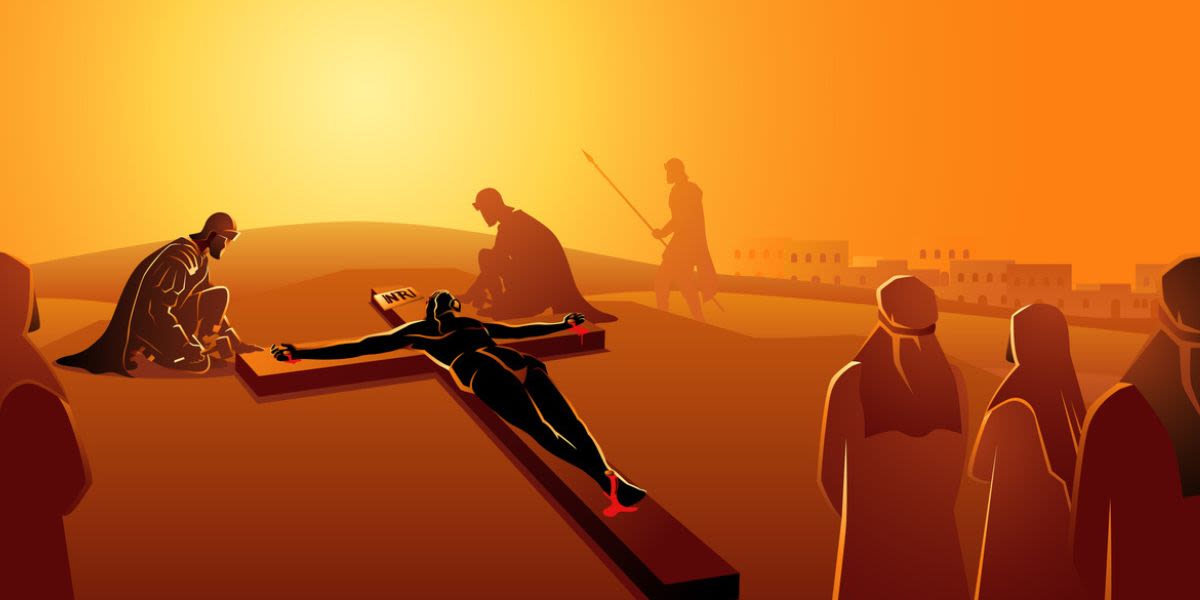‘Disciple’ is a word we often use but rarely define. What does ‘disciple’ really mean? In one of our New Testament classes, we paused to consider what ‘disciple’ meant, and whether it was still a good word to use. After all, it’s not a word we use very often outside the church. After a few minutes of considering other options that might be more meaningful, someone suggested ‘apprentice.’ Apprentice – someone who learns a trade from a master - seemed like a word that conveyed the meaning of the original in a way that most people would understand.
So, if the disciples were apprentices, then what did they learn from their master Jesus over the Easter weekend?
The disciples learnt about suffering. From what we can read in the gospels, the disciples were unprepared for Jesus’ suffering. They usually struggled to grasp his teaching that he would die, and even on the rare occasions it almost became clear to a few, they rejected the idea outright (Mark 8:31-33).
Hindsight is a wonderful thing, and it’s easy to imagine that if we had been among the twelve, we would have grasped the necessity of Jesus’ death.
I don’t think that’s likely.
Observation of our Christian culture doesn’t seem to indicate that we have learnt the place of suffering in the Christian life. It seems people are still genuinely surprised when bad things happen, when life is hard, or when they suffer for their faith.
Our current Western culture of chasing personal happiness plays a big role here. We grow up on stories where good guys win and everyone lives happily ever after. Got a headache? Pop a pill. Too hot? Crank the AC. Hard work? Let machines handle it. The modern mindset says that if we just discover the correct approach, adhering to the proper method, or implementing the right policy, success is assured.
Jesus consistently taught his disciples that following him required self-denial and “taking up the cross” (Mark 8:34, Mark 10:43-45, 12:8). As Easter approached, this phrase ceased to be merely a symbolic expression. By the time Easter arrived, it became evident that for Jesus, “taking up the cross” was entirely literal, involving real suffering and sacrifice. Have we perhaps diluted its meaning by reducing it once again to a metaphor? The disciples learned through harsh experience, through the reality of hammers, nails, and a wooden beam, that following Jesus entails genuine self-denial and hardship.
The disciples learnt about hope. Readers of a certain age and culture will remember that ‘nobody expects the Spanish Inquisition’. It seems that nobody expected the resurrection either. Unbelievers futilely arranging guards for a soon-to-be empty tomb seems quite reasonable, but it seems a bit odd that so many of Jesus’ disciples simply didn’t recognise him (Mark 16:8, Luke 24:13-35, John 20:11-18).
Perhaps the idea of the resurrection is harder to grasp than the idea of suffering? In terms of the Hebrew scriptures, it could be argued that the suffering of The Servant in Isaiah gets more column-inches than the resurrection in Daniel, so it’s less surprising that the ‘resurrection’ light bulb took longer to switch on.
Or maybe it was the unprecedented nature of the resurrection that was so confusing. Plenty of ‘lower-case S’ servants had already suffered in some way: Joseph, Moses, Naomi, David, Esther, Daniel, even John. So, there was a history of suffering servants before the Suffering Servant. But none of them had been resurrected – not even slightly.
Was it the sheer impossibility of the resurrection? To me, the closer you get to death the harder it seems to believe in the resurrection. In the last year or so I’ve watched both my father, and my sister experience failing bodies. At the time of writing, they are both still alive, but only just. By the time you read this, they might be gone.
The prolonged, gradual decline caused by dementia and a stroke in my father’s case, and cancer in my sister’s, appears completely unstoppable.
The bodies they are now in are just shadows of what they were, it beggars belief that they could ever be repaired.
Perhaps, just as the disciples had to grasp the stark reality of suffering through the cross, with its nails and wood, they also came to understand the truth of the resurrection through a series of contrasting yet tangible experiences: walking, touching, and sharing a meal of fish.
No theory could have broken bread with the two at Emmaus, and no systematic theology textbook could have offered the wound on its side for inspection. The disciples needed a lesson more powerful and convincing than death, and that’s what they got.
So, what did the first disciples take away from Easter? It takes the whole NT to explore that, but at least two of the lessons were about the reality of suffering and the power of the resurrection. May the current disciples of Jesus learn those two lessons too.


